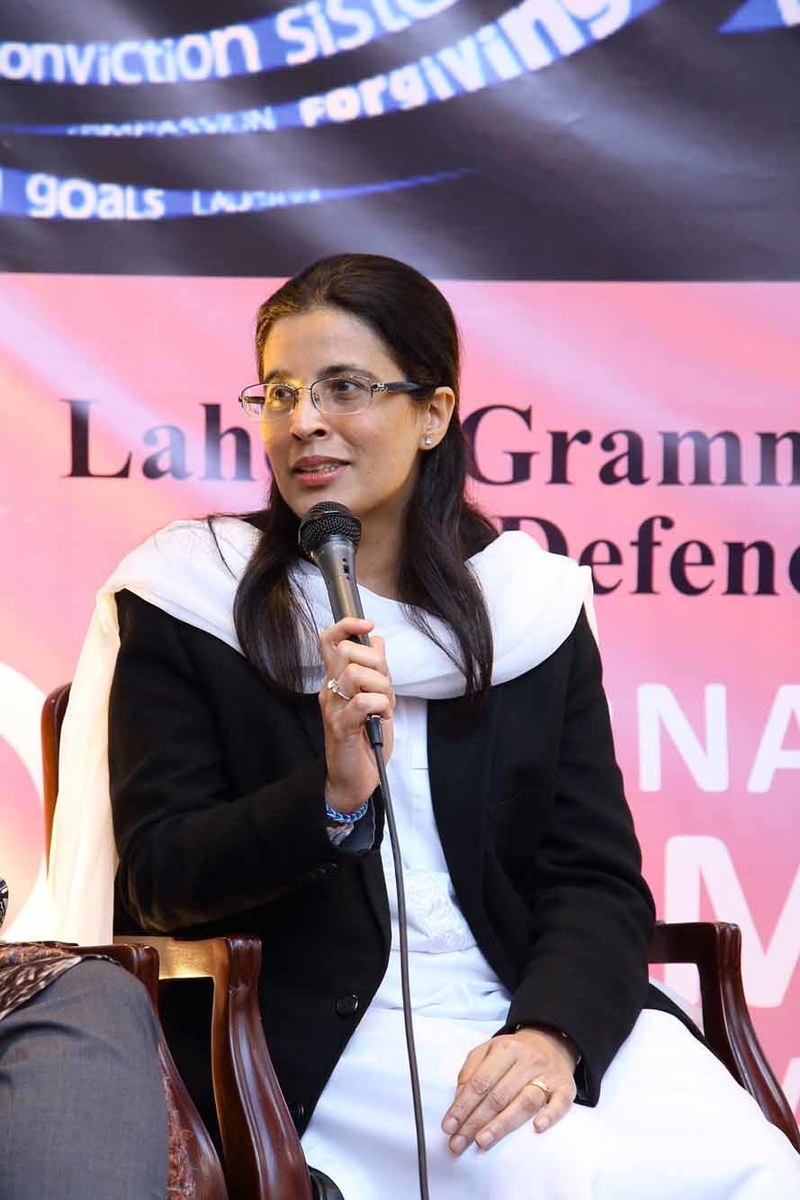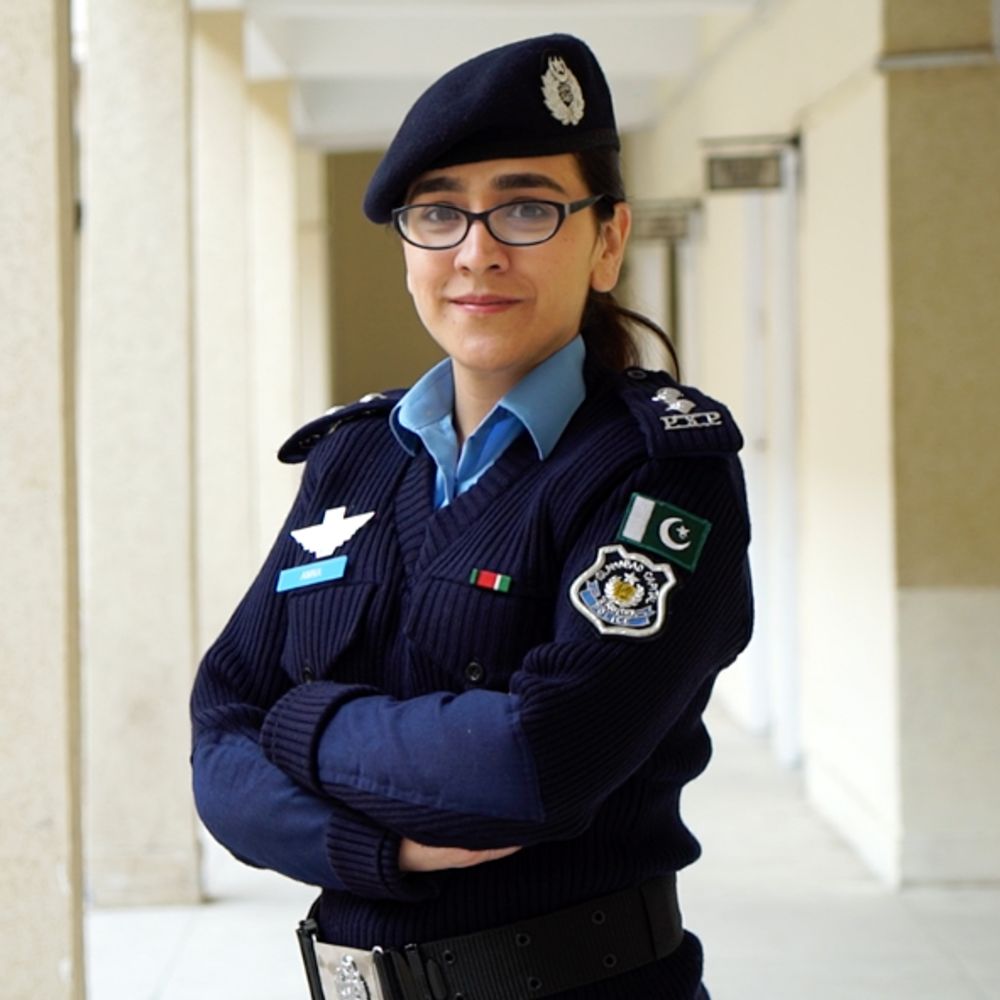RAWALPINDI: In time for International Women's Day, Arab News highlights eight Pakistani women who've already made waves this year.
Zara Naeem Dar, global ACCA topper
Zara Naeem Dar internationally topped the notoriously difficult exams for the Association of Chartered Certified Accountants (ACCA) in December and was the global prize winner for the test.
Dar was celebrated widely in Pakistan with many politicians, entertainers, and media personalities calling her the pride of the nation.

Zara Naeem Dar, global ACCA topper. (Courtesy: Social Media)
Dananeer Mobeen of 'Pawri' meme fame
A viral video shot in Pakistan by teen Dananeer Mobeen turned into a remix by an Indian composer, and now, after amassing over one million followers, Mobeen has become a household name in both countries.
The remixed video has been viewed nearly 50 million times on YouTube and has landed the young influencer brand deals. But most impressive of all, Mobeen's humorous video managed to bring together Pakistanis and Indians to share a laugh.

Dananeer Mobeen of 'Pawri' meme fame. (Courtesy: Social Media)
Dr. Zubaida Sirang, first Pakistani doctor to make Book Authority list
In a first for men and women Pakistani doctors, Chitrali eye surgeon Dr. Zubaida Sirang made headlines this year when her book became the first-ever Pakistani authored text featured on the prestigious Book Authority List.
Her book 'Optics Made Easy: The Last Review of Clinical Optics' was included in the list of ‘Best Ophthalmology Books of All Time.' The book is written for ophthalmology students as a last-minute revision tool.

Dr. Zubaida Sirang, first Pakistani doctor to make Book Authority list. (Courtesy: Social Media)
Justice Ayesha Malik, outlawing the two-finger virginity test
Lahore High Court Judge Ayesha Malik made a groundbreaking ruling in January of this year when she outlawed the use of the two-finger virginity test that was employed when doing rape exams on victims of sexual assaults and violence.
Justice Malik ruled the test unconstitutional and a violation of the dignity of female victims in a 30-page ruling. Justice Malik's decision was applauded as a powerful win for women's rights movements across the country.

Justice Ayesha Malik, outlawing the two-finger virginity test. (Courtesy: Social Media)
Naseebo Lal, PSL anthem
This year's Pakistan Super League (PSL) anthem was powerfully sung by singer Naseebo Lal, who was at the receiving end of horrific internet backlash for her accent when singing English words in the song.
Lal's song made headlines and dominated social media discourse, but for every insult she contended with, Lal was flushed with love and support from other artists and fans. Her anthem "Groove Mera," now sits at over 13 million views on YouTube.
https://www.youtube.com/watch?v=KBdjwrywyKo

Pakistani singer Naseebo Lal. (Courtesy: Social Media)
Aliza Ayaz, UN Youth Ambassador for the Sustainable Development Goals (SDGs)
In February of this year, student Aliza Ayaz was selected as a UN Youth Ambassador for Sustainable Development Goals (SDGs) due to her relentless work in the realm of climate action.
Ayaz is only the second woman to represent Pakistan in this way, the first being Malala Yousafzai. Ayaz will serve in a dedicated group that works towards engaging and fostering youth in leadership and participating in economic and political processes while exploring how to document and achieve in the space of climate action.

Aliza Ayaz, UN Youth Ambassador for the Sustainable Development Goals (SDGs). (Courtesy: Social Media)
Policewoman Amna Baig, international award for change-making
A sub-divisional officer in the capital, ASP Amna Baig, was awarded the Integrity Icon Award on Friday by the Danish ambassador to Pakistan. The award honors civil servants for contributions towards making a positive change in their societies.
Twitter savvy Baig has devotedly raised women and gender issues during her work in Islamabad's Kohsar.
She took oath as a sub-divisional officer in January this year.

Policewoman Amna Baig, international award for change-making. (Courtesy: Social Media)
Sidra Qasim, Atoms explosion
Co-founder of footwear brand 'Atoms,' Sidra Qasim shared her incredible journey to helm one of the most sought after and successful sneaker companies with the Humans of New York (HONY) Instagram page, a decision that saw her going viral and the demand for Atoms exploding.
Qasim's story dominated headlines as she detailed in over 12 posts shared by (HONY) how she defied expectations, followed her heart, and changed courses more than once to get to where she is today. She was celebrated abroad and at home for shining a light on Pakistani women who break the mold.

Co-founder of footwear brand 'Atoms,' Sidra Qasim. (Courtesy: Social Media)



















